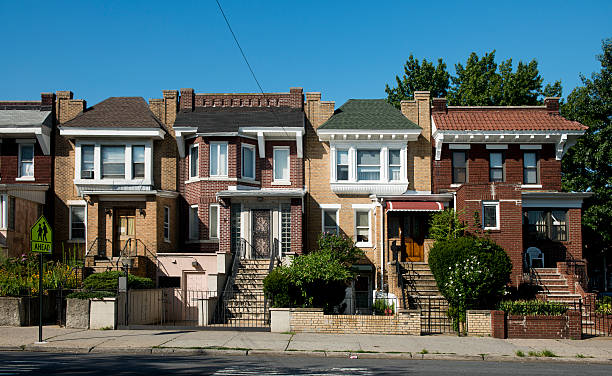As New York City small property owners of buildings that include rent-stabilized apartments, we take pride in working to maintain safe, quality housing that supports residents of our local community.
But we know firsthand that our city is facing a worsening crisis: It’s becoming harder and harder to maintain the rent-stabilized housing that millions of New Yorkers rely on. From crushing property taxes to impractical regulatory burdens, the list goes on and on.
The latest threats to rent-stabilized apartments are two senseless pieces of legislation regarding “rent calculations” that the State Legislature rushed to pass last month. These bills will require property owners to do the impossible by being held legally liable for 49-year-old records that, in many cases, were compiled by previous owners and no longer exist.
If these bills become law, two things will happen. First, it will be virtually impossible for many small property owners to even comply with the regulations or prevent much-needed apartments from falling into debt and deterioration. And second, it is not just owners who will feel the pain, as rent-stabilized tenants will end up suffering negative impacts of State lawmakers’ bad decisions.
That’s why Governor Kathy Hochul must veto this legislation if it is sent to her desk for signature.
So what are these bills all about, and why are they so bad for property owners and tenants alike?
We can start by recalling the disastrous impacts of New York State’s so-called Housing Stability and Tenant Protection Act of 2019, or HSTPA. Summarized briefly, that law has put financial constraints on property owners – especially small owners – that make it more challenging than ever to undertake maintenance and basic improvements in our units.
Prior to 2019, State law required that owners of rent-stabilized apartments retain rent records for four years in order to allow for review of recent rent adjustments related to maintenance and improvement. As part of its harmful effects, the HSTPA wrongly sought to retroactively change that by requiring a much longer “lookback” period which, in many cases, would be impossible for owners to comply with.
But a landmark court decision known as Regina v. DHCR ruled sensibly that extending the lookback period would violate the constitutional due process rights of property owners. How could an owner be liable for rent overcharges based on old rent records that they or previous owners had never been required to keep in the first place? The Court agreed this made no sense.
Which brings us to today. The two “rent calculation” bills passed by the State Legislature were apparently intended to make clarifications to the HSPTA. The problem is that their bills fail to address the Regina court ruling and, for that reason, would violate the due process rights of property owners, which helps no one.
Shockingly, these bills would extend the lookback period to 49 years. So after a court noted that it was impossible for most rent-stabilized owners to comply with a lookback period longer than four years, the State Legislature is demanding they look back more than four decades. And the Legislature is telling us that we as property owners are committing “fraud” if we can’t display those records for the public.
Think about it. In many cases, those documents from 49 years ago will no longer exist. The building may have changed hands multiple times over that period. The current property owner may not have been alive when those documents were created. Or to think about it a different way – do you still have your tax returns from 10 or 20 years ago, or records from your classes in high school?
And remember – these are records that property owners were never required by law to keep beyond four years.
So how is the owner supposed to follow this law?
State lawmakers don’t seem to care. They passed a law that sounds good to some people because it’s positioned as a way to help tenants learn about their apartment’s history.
But what will the real result be?
Property owners like me will be made liable for lookback demands that we can’t meet. We will be penalized with fines that, along with property taxes and other financial burdens, may ultimately exceed our income. We may be left with no financial resources to make repairs in our building. The quality of the apartments will degrade, and tenants will understandably complain about the lack of basic fixes and improvements. And of course, in the end, the City’s housing crisis will get worse.
Does this sound like a helpful clarification to the HSTPA? Does it sound like good news for tenants, if their rent payments will only be used by the property owner to pay endless fines rather than improving the building? What does that do to help tenants?
Or maybe it’s just about so-called progressive lawmakers trying to change the rules after they lost in court?
All we can hope is that these pieces of legislation never become law. Stopping these bills isn’t just the legally correct thing to do. If you care about protecting rent-stabilized housing for New Yorkers, it’s the only option.
Valentina Gojcaj and Aaron Weber are board members of Small Property Owners of New York.




































